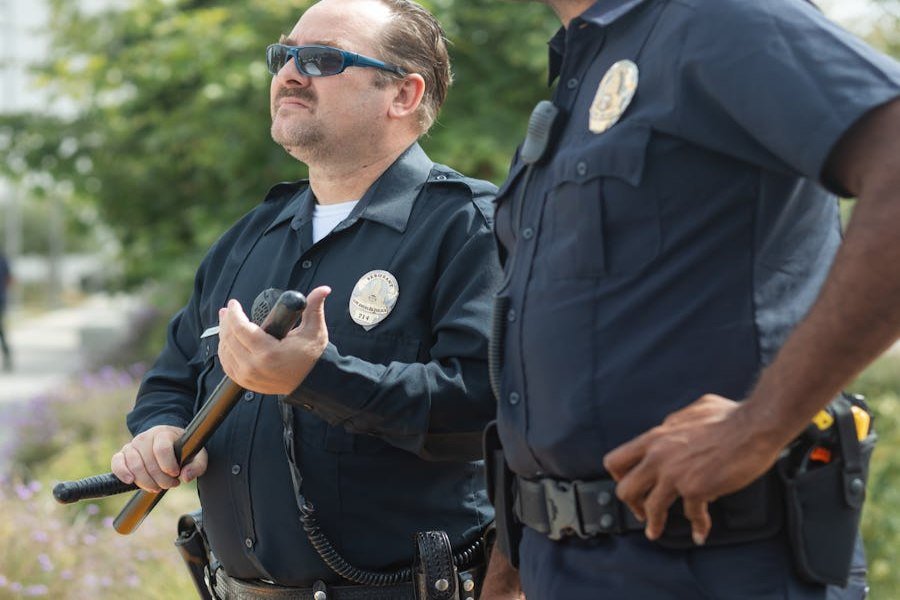
In today’s world, video surveillance has become a crucial tool for law enforcement, providing valuable evidence in criminal investigations and legal proceedings. However, with the rise in public demand for transparency and privacy, police departments face an increasing challenge in balancing the two. Enter automated video redaction – a game-changing technology that promises to streamline the process while safeguarding sensitive information.
Let’s explore both the costs and benefits of implementing automated video redaction systems in police departments, helping you understand why this technology is rapidly gaining traction and what it could mean for the future of law enforcement.
Benefits of Automated Video Redaction
1. Increased Efficiency
One of the standout benefits of automated video redaction is the incredible efficiency it offers. Manually redacting video footage can be a time-consuming and tedious task, often taking hours or even days depending on the length of the video. With automated systems, however, redactions happen in a fraction of the time, freeing up valuable resources.
In police departments where time is often of the essence, being able to quickly process surveillance footage can be the difference between solving a case or delaying an investigation. This speed not only saves time but also ensures that officers can move on to other critical tasks more quickly.
2. Cost Savings
Though there are upfront costs associated with setting up automated video redaction systems, the long-term savings are significant. For one, departments can save on the labour costs of having officers or administrative staff manually redact footage. Automation means fewer personnel are required for this task, reducing the need for overtime or additional hires.
Moreover, the speed of automation translates to faster case resolutions, meaning fewer cases might remain in limbo, and resources can be allocated to other pressing matters. Over time, the reduced costs of manual labour and quicker turnaround on video footage provide clear financial benefits. Check out this user-friendly video redaction software for police force.
3. Improved Accuracy
Manual video redaction is prone to human error, with some details potentially being missed or incorrectly redacted. Automated systems, on the other hand, rely on sophisticated AI that’s trained to detect specific objects, faces, or other sensitive information accurately.
By reducing the likelihood of mistakes, automated video redaction ensures that police departments can share accurate and compliant footage without worrying about missing crucial details. This level of accuracy also builds trust with the public, as people are more likely to feel confident in a system that works consistently and reliably.
4. Enhanced Public Trust and Accountability
Public trust in law enforcement can be fragile, and transparency is key to maintaining it. Automated video redaction allows police departments to share footage without violating individuals’ privacy rights. By ensuring that private information is blurred or removed, departments demonstrate their commitment to transparency while respecting the privacy of individuals involved.
This can be especially important in high-profile cases where footage may be requested by the public or the media. The ability to quickly redact and share this footage helps law enforcement stay accountable without compromising the integrity of an investigation or the privacy of innocent people.
5. Compliance with Privacy Laws and Regulations
In an age where data protection laws are more stringent than ever, police departments need to be careful about how they handle video footage. Automated video redaction can help ensure that all footage complies with privacy laws like GDPR (General Data Protection Regulation) in the UK and the Freedom of Information Act.
These laws require that sensitive information, such as faces or personal data, be protected when shared. By using automated redaction, police departments can avoid potential legal issues related to privacy breaches, keeping them on the right side of the law.
Costs of Implementing Automated Video Redaction
While the benefits are clear, there are also some costs associated with implementing automated video redaction systems.
1. Initial Setup and Implementation Costs
The first hurdle is the initial investment. Automated video redaction systems require specialized software, and there’s often a significant upfront cost associated with purchasing licenses or subscription-based services. The technology may also need to be integrated with existing video surveillance systems, which can come with additional costs for compatibility and configuration.
Furthermore, departments may need to invest in hardware upgrades or cloud storage solutions to manage the large amounts of data that these systems will process.
2. Maintenance and Updates
Like any technology, automated redaction systems need ongoing maintenance to remain effective. Software updates and bug fixes may be necessary to improve functionality or adapt to new challenges. This could involve costs for subscriptions, technical support, and occasional system upgrades to keep the technology in line with evolving law enforcement needs.
3. Technology Limitations and Accuracy Issues
Despite their efficiency and accuracy, AI-powered redaction systems are not perfect. Occasionally, they may struggle to identify certain objects or faces, particularly if the footage is of poor quality or if the system hasn’t been properly trained to detect specific objects.
There’s also a risk that the system might either over-redact footage, obscuring information that should remain visible, or under-redact, allowing sensitive data to slip through the cracks. This could lead to potential errors that require human oversight or correction.
Conclusion
Automated video redaction offers a wealth of benefits for police departments, from increased efficiency and cost savings to enhanced accuracy and compliance with privacy laws. While there are some upfront costs and challenges involved in implementing this technology, the long-term benefits make it a worthy investment. As AI continues to advance, automated video redaction will play an even more integral role in law enforcement, balancing transparency with privacy while improving the speed and effectiveness of investigations.
